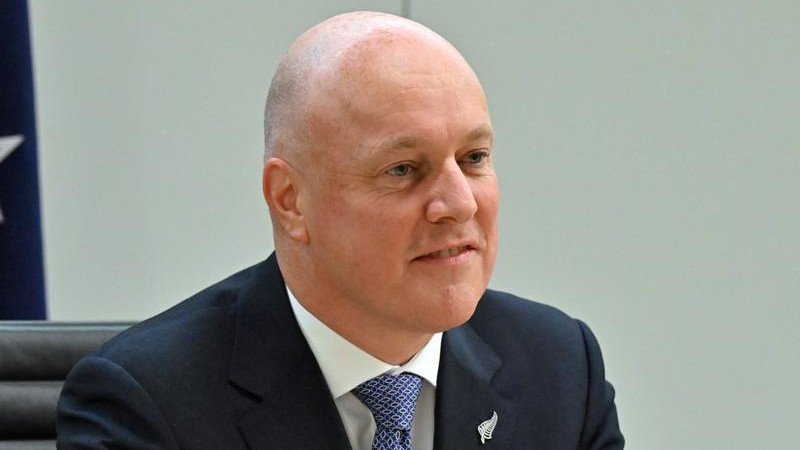NZ PM Chris Luxon avoids questions after an Australian diplomat’s partner was involved in drunken street fight
Officials are working through the case after a diplomat's partner was allegedly involved in a late-night drunken street fight following a football match.

New Zealand’s prime minister has sidestepped the question of whether he backs a police bid to charge an Australian diplomat’s partner accused of a late-night street fight.
In the early hours of Sunday morning, the diplomat’s partner was allegedly involved in a drunken punch-up on Wellington’s Dixon Street.
The man was dressed in Wallabies supporter gear, sources have told AAP, hours after Australia’s Bledisloe Cup loss in the Kiwi capital.
Sign up to The Nightly's newsletters.
Get the first look at the digital newspaper, curated daily stories and breaking headlines delivered to your inbox.
By continuing you agree to our Terms and Privacy Policy.Police detained and attempted to charge the man, but released him as he enjoys diplomatic immunity - a special legal protection extended to overseas-serving diplomats and their families.
The man and his diplomat partner have not been identified.
New Zealand police confirm they have sought to have the man’s immunity stripped, but that decision rests with Australia and may fall to Foreign Minister Penny Wong.
Police have not detailed the charges they seek to lay as they wait to hear whether immunity will be waived.
On Thursday, Kiwi Prime Minister Chris Luxon equivocated when asked if his government would support the bid for the man to face justice.
“That’s an issue for police. I’m not fully up to speed with all the details yet, but ultimately that’s an issue for police to work through,” he said.
“I’m not going to go into that issue while there’s an investigation going on and ultimately that’s an issue that needs to be worked through properly.”
The issue is an awkward one for Mr Luxon, who led the National Party to power in 2023 with a tough-on-crime message.
Unless diplomatic immunity is waived, the man would not have to face charges and possible punishment.
It is not clear how hard New Zealand or Australia are fighting behind the scenes to either retain or remove the man’s diplomatic immunity.
Both Australia’s Department of Foreign Affairs and Trade (DFAT) and the New Zealand counterpart (MFAT) are being guarded with their public statements.
A NZ government official confirmed to AAP their request had been officially lodged.
DFAT has yet to make public comment beyond acknowledging it is aware of the case.
Deputy Prime Minister Richard Marles, coincidentally in New Zealand for a regional defence ministers meeting, also deferred when asked about the matter.
“We expect all of our diplomats and our diplomats’ families abroad to abide by the laws of the countries of which they are in,” he told Radio NZ.
Wellington barrister Graeme Edgeler, who has worked on and studied cases of diplomatic immunity, said he believed Australia was likely to grant New Zealand’s request.
“The friendlier New Zealand is with those countries, the more likely it is they might agree,” he told AAP.
Mr Edgeler said the diplomatic immunity laws “bring diplomacy into play” in the justice system.
“Both countries I suspect as a general rule try to keep (these cases) quiet,” he said, outlining how negotiations might work.
“It might just be ‘we need to charge this person, do you agree? Here are the charges we would lay, do you agree?’.”
“It will be spelled out in some level of detail and it’s up to the other country what they do.”
In recent years New Zealand has agreed to waive diplomatic immunity for its diplomats and also requested other countries do so.
In 2016, it waived immunity from a South Korea-based Kiwi diplomat when he allegedly assaulted police and kicked their car to prevent them from arresting two Kiwi businessmen in Seoul.
In a high-profile case, Malaysian diplomat Mohammed Rizalman was eventually sentenced to nine months’ home detention in 2015 for intent to rape a Wellington woman, after a bungled request to waive immunity preceded his extradition.
In 2019, Alfred Keating, a senior NZ military attache stationed in the US, was also given home detention for attempting to take intimate recordings of another person by planting a covert camera in a bathroom.
As that case was discovered by New Zealand officials, Mr Keating was whisked home to face justice, where he was convicted by a jury.
